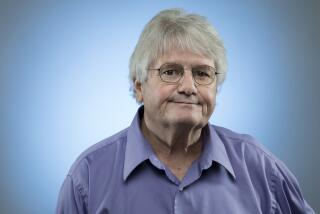Biopool Products Approved for Japan
- Share via
It’s not just the Food and Drug Administration that runs biomedical company executives ragged and leaves them waiting with bated breath. Other organizations worldwide have similar powers of control--as the leaders of Ventura’s Biopool International can attest.
Biopool recently completed regulatory requirements asked for by the Japanese Ministry of Health. It was a drawn-out process, but in the end the government agency granted approval for Biopool to market four products to be used for typing and grouping blood for transfusion purposes in Japan.
Biopool also manufactures test kits for the diagnosis of certain blood disorders and for the detection of antibodies and the presence of drugs in the bloodstream. The company already markets about 50 other products in Japan.
Michael Bick, president and chief executive officer of Biopool, said none of the other products--which help identify rare antibodies and antigens in the blood--have quite the clout of the most recently approved products.
“They represent the most significant products in terms of dollar volume,” Bick said. “It’s a competitive marketplace and I think we’re going to gain position there in small steps. This is not a home run, but it broadens the distributors’ market range and makes their package a more desired package for the end user.”
Bick said the new blood kits are part of the product range made available to Biopool after the company, earlier this year, purchased Organon Teknika, a unit of Akzo Noble of Arnhem, the Netherlands.
The four products will be marketed to labs, hospitals and other blood transfusion clinics through Biopool’s Japanese distributor Cosmo Bio Co. Ltd., a division of Cosmo Oil. Bick said officials of the two companies will meet this week in Ventura to plan further entry into the Japanese market.
It is a market that is very important to Biopool’s success, Bick said.
“In our entire product range, North America is No. 1, followed very closely by Europe, which is followed very closely by Japan,” he said. “In in-vitro diagnostics, Japan probably consumes 15% of the world’s needs.”
More to Read
Inside the business of entertainment
The Wide Shot brings you news, analysis and insights on everything from streaming wars to production — and what it all means for the future.
You may occasionally receive promotional content from the Los Angeles Times.








